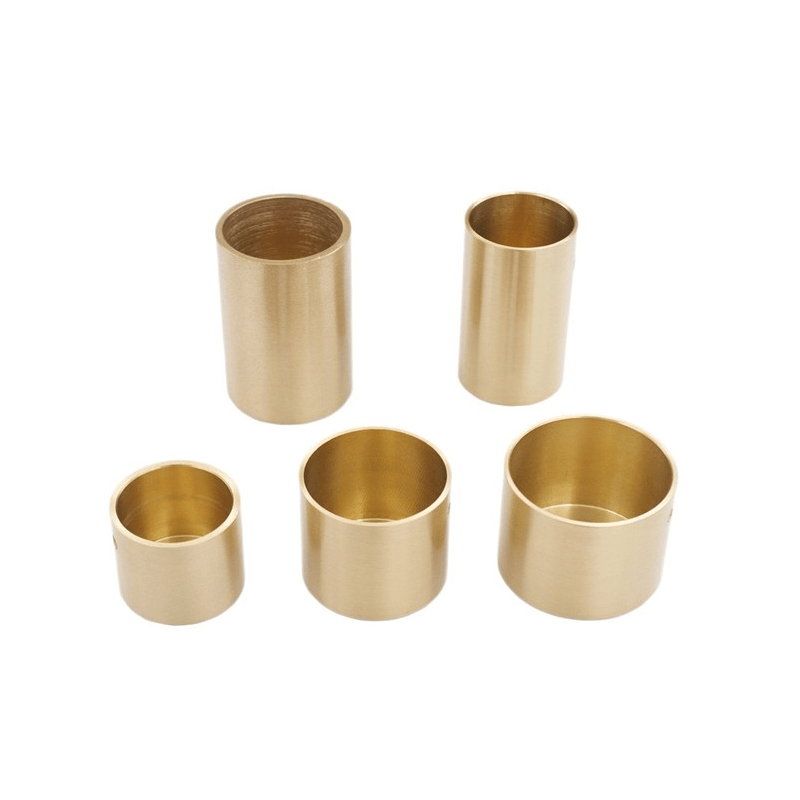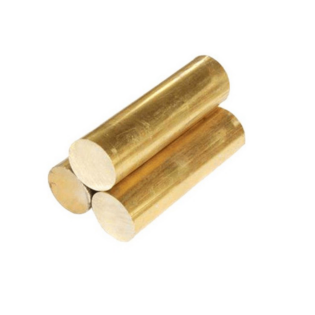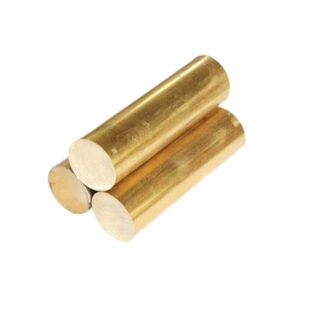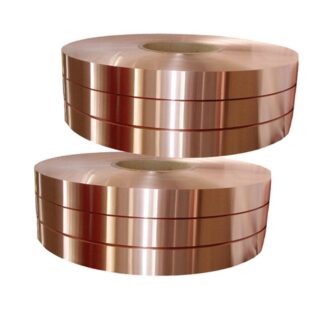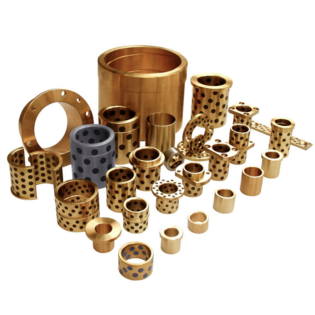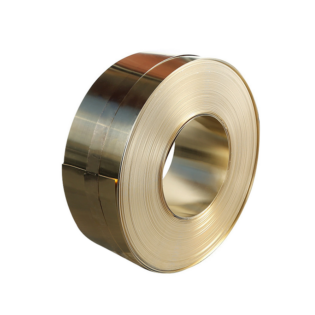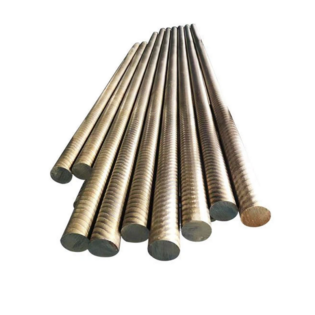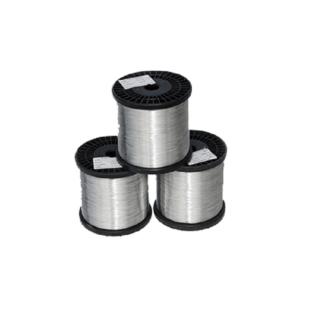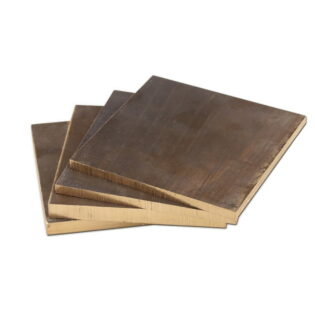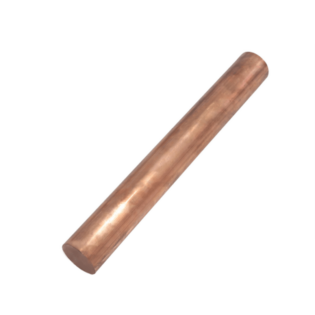C51000 Description
C51000 is a tin-phosphor bronze alloy with many excellent properties and a wide range of applications. In this article, we will focus on the characteristics and uses of C51000 copper alloy.
Introduction: C51000 tin-phosphorus bronze alloy is an important copper alloy material with excellent properties and diverse applications. Its chemical composition includes copper (Cu), phosphorus (P), tin (Sn), zinc (Zn), lead (Pb), iron (Fe) and nickel (Ni). C51000 copper alloy has excellent corrosion resistance, wear resistance and antimagnetic properties and is suitable for a variety of industrial fields. Next, we’ll explore the properties, uses, and answers to three questions about tin phosphor bronze.
Characteristics of C51000 tin phosphor bronze
Corrosion resistance: C51000 copper alloy shows high corrosion resistance in corrosive environments such as sea water and atmosphere, and can maintain good working condition.Wear resistance: This alloy has excellent wear resistance and can be used to manufacture wear-resistant parts and sliding bearings, and can maintain good working performance in high pressure and high friction environments.
Antimagnetic properties: C51000 alloy has good antimagnetic properties and is suitable for applications requiring antimagnetic materials.
Strength and elasticity: C51000 copper alloy has high strength and good elasticity, and can withstand large external loads.
Processing properties: The alloy has good pressure processing properties in both hot and cold states, and can be formed by hot pressing and cutting.
C51000 Tin Phosphor Bronze is an important copper alloy material with excellent properties and a wide range of applications. Its characteristics include corrosion resistance, wear resistance, antimagnetic properties, strength and elasticity, etc., and is suitable for manufacturing springs, wear-resistant parts, antimagnetic parts, etc. The chemical composition content of C51000 tin phosphor bronze is precisely controlled to ensure the performance stability of the alloy. By gaining a deeper understanding of the alloy’s properties and uses, we can better apply its advantages in various fields.
การใช้งานทั่วไป
สถาปัตยกรรม: แผ่นแบริ่งสะพาน
Electrical: electrical connectors, electrical flexing contact blades, electromechanical spring components, electronic and precision instrument parts, electronic connectors, fuse clips, resistance wire, switch parts, wire brushes
Fasteners: cotter pins, fasteners, lock washers
Industrial: beater bar, bellows, bourdon tubes, chemical hardware, clutch disks, diaphragms, perforated sheets, pressure responsive elements, sleeve bushings, springs, textile machinery, truss wire, welding rods
ข้อกำหนดที่คล้ายกันหรือเทียบเท่า
| ซีดีเอ | ASTM | SAE | AMS | รัฐบาลกลาง | ทหาร | อื่น |
|---|---|---|---|---|---|---|
| C51000 | B139 B139M | J461 J463 | 4625 |
องค์ประกอบทางเคมี
| ลูกบาศ์ก% | Pb% | Sn% | สังกะสี% | เฟ% | พี % | ||||||
|---|---|---|---|---|---|---|---|---|---|---|---|
องค์ประกอบทางเคมีตามมาตรฐาน ASTM B139/B139M-12(2017) หมายเหตุ: Cu + ผลรวมขององค์ประกอบที่มีชื่อ ขั้นต่ำ 99.5% ค่าเดียวแสดงถึงค่าสูงสุด | |||||||||||
| เรม | 0.05 | 4.20- 5.80 | 0.30 | 0.10 | 0.03- 0.35 | ||||||
ความสามารถในการแปรรูป
| โลหะผสมทองแดง หมายเลข UNS | คะแนนความสามารถในการแปรรูป | ความหนาแน่น (ปอนด์/นิ้ว3 ที่ 68 °F) |
|---|---|---|
| C51000 | 20 | 0.320 |
คุณสมบัติทางกล
C51000
H04 ยาก
ช่วงขนาด: 1/4″ ถึง 1/2″ แบบกลมและแบบหกเหลี่ยม
| ความต้านแรงดึงขั้นต่ำ | ความแข็งแรงของผลผลิต ที่ส่วนขยาย 0.5% ภายใต้ภาระ ขั้นต่ำ | การยืดตัว เส้นผ่านศูนย์กลาง 4x หรือความหนาของชิ้นงาน ขั้นต่ำ | ความแข็งแบบร็อคเวลล์ “B” | หมายเหตุ | ||
|---|---|---|---|---|---|---|
| ksi | MPa | ksi | MPa | % | HRB ทั่วไป | |
| 70 | 485 | 13 | 87 | |||
ช่วงขนาด: มากกว่า 1/2″ ถึง 1″ กลมและหกเหลี่ยมรวม
| ความต้านแรงดึงขั้นต่ำ | ความแข็งแรงของผลผลิต ที่ส่วนขยาย 0.5% ภายใต้ภาระ ขั้นต่ำ | การยืดตัว เส้นผ่านศูนย์กลาง 4x หรือความหนาของชิ้นงาน ขั้นต่ำ | ความแข็งแบบร็อคเวลล์ “B” | หมายเหตุ | ||
|---|---|---|---|---|---|---|
| ksi | MPa | ksi | MPa | % | HRB ทั่วไป | |
| 60 | 415 | 15 | 87 | |||
ช่วงขนาด: มากกว่า 1″ กลมและหกเหลี่ยม
| ความต้านแรงดึงขั้นต่ำ | ความแข็งแรงของผลผลิต ที่ส่วนขยาย 0.5% ภายใต้ภาระ ขั้นต่ำ | การยืดตัว เส้นผ่านศูนย์กลาง 4x หรือความหนาของชิ้นงาน ขั้นต่ำ | ความแข็งแบบร็อคเวลล์ “B” | หมายเหตุ | ||
|---|---|---|---|---|---|---|
| ksi | MPa | ksi | MPa | % | HRB ทั่วไป | |
| 55 | 380 | 18 | 87 | |||
C51000
H08 spring
Size range: 0.026″ to 1/16″ round inclusive
| ความต้านแรงดึงขั้นต่ำ | ความแข็งแรงของผลผลิต ที่ส่วนขยาย 0.5% ภายใต้ภาระ ขั้นต่ำ | การยืดตัว เส้นผ่านศูนย์กลาง 4x หรือความหนาของชิ้นงาน ขั้นต่ำ | ความแข็งแบบร็อคเวลล์ “B” | หมายเหตุ | ||
|---|---|---|---|---|---|---|
| ksi | MPa | ksi | MPa | % | HRB ทั่วไป | |
| 115 | 790 | |||||
Size range: over 1/16″ to 1/8″ round inclusive
| ความต้านแรงดึงขั้นต่ำ | ความแข็งแรงของผลผลิต ที่ส่วนขยาย 0.5% ภายใต้ภาระ ขั้นต่ำ | การยืดตัว เส้นผ่านศูนย์กลาง 4x หรือความหนาของชิ้นงาน ขั้นต่ำ | ความแข็งแบบร็อคเวลล์ “B” | หมายเหตุ | ||
|---|---|---|---|---|---|---|
| ksi | MPa | ksi | MPa | % | HRB ทั่วไป | |
| 110 | 760 | |||||
Size range: over 1/8″ to 1/4″ round inclusive
| ความต้านแรงดึงขั้นต่ำ | ความแข็งแรงของผลผลิต ที่ส่วนขยาย 0.5% ภายใต้ภาระ ขั้นต่ำ | การยืดตัว เส้นผ่านศูนย์กลาง 4x หรือความหนาของชิ้นงาน ขั้นต่ำ | ความแข็งแบบร็อคเวลล์ “B” | หมายเหตุ | ||
|---|---|---|---|---|---|---|
| ksi | MPa | ksi | MPa | % | HRB ทั่วไป | |
| 105 | 725 | 3.5 | ||||
Size range: over 1/4″ to 3/8″ round inclusive
| ความต้านแรงดึงขั้นต่ำ | ความแข็งแรงของผลผลิต ที่ส่วนขยาย 0.5% ภายใต้ภาระ ขั้นต่ำ | การยืดตัว เส้นผ่านศูนย์กลาง 4x หรือความหนาของชิ้นงาน ขั้นต่ำ | ความแข็งแบบร็อคเวลล์ “B” | หมายเหตุ | ||
|---|---|---|---|---|---|---|
| ksi | MPa | ksi | MPa | % | HRB ทั่วไป | |
| 100 | 690 | 5 | ||||
Size range: over 3/8″ to 1/2″ round inclusive
| ความต้านแรงดึงขั้นต่ำ | ความแข็งแรงของผลผลิต ที่ส่วนขยาย 0.5% ภายใต้ภาระ ขั้นต่ำ | การยืดตัว เส้นผ่านศูนย์กลาง 4x หรือความหนาของชิ้นงาน ขั้นต่ำ | ความแข็งแบบร็อคเวลล์ “B” | หมายเหตุ | ||
|---|---|---|---|---|---|---|
| ksi | MPa | ksi | MPa | % | HRB ทั่วไป | |
| 90 | 620 | 9 | 95 | |||
คุณสมบัติทางกายภาพ
คุณสมบัติทางกายภาพจัดทำโดย CDA *Determined on an alloy containing 5% tin and .2% phosphorus. This value will vary with the composition. | |||||||||||
| จารีตประเพณีของสหรัฐอเมริกา | เมตริก | ||||||||||
|---|---|---|---|---|---|---|---|---|---|---|---|
| จุดหลอมเหลว - ของเหลว | 1920 °F | 1049 °C | |||||||||
| จุดหลอมเหลว – โซลิดัส | 1750 องศาฟาเรนไฮต์ | 954 องศาเซลเซียส | |||||||||
| ความหนาแน่น | 0.32 lb/in3 ที่อุณหภูมิ 68 °F | 8.86 gm/cm3 ที่อุณหภูมิ 20 °C | |||||||||
| แรงดึงดูดเฉพาะ | 8.86 | 8.86 | |||||||||
| การนำไฟฟ้า* | 15% IACS at 68 °F | 0.088 MegaSiemens/cm at 20 °C | |||||||||
| การนำความร้อน | 40 Btu/sq ft/ft hr/°F at 68 °F | 69.2 W/m at 20 °C | |||||||||
| ค่าสัมประสิทธิ์การขยายตัวทางความร้อน 68-572 | 9.9 ·10-6 ต่อ °F (68-572 °F) | 17.1 ·10-6 ต่อ °C (20-300 °C) | |||||||||
| ความจุความร้อนจำเพาะ | 0.09 บีทียู/ปอนด์/°F ที่ 68 °F | 377.1 J/kg ที่ 20 °C | |||||||||
| โมดูลัสความยืดหยุ่นในแรงดึง | 16,000 ksi | 110310 เมกะปาสคาล | |||||||||
| โมดูลัสของความแข็งแกร่ง | 6,000 ksi | 41370 เมกะปาสคาล | |||||||||
คุณสมบัติการประดิษฐ์
คุณสมบัติการประดิษฐ์จัดทำโดย CDA | |||||||||||
| เทคนิค | ความเหมาะสม | ||||||||||
|---|---|---|---|---|---|---|---|---|---|---|---|
| บัดกรี | ยอดเยี่ยม | ||||||||||
| ประสาน | ยอดเยี่ยม | ||||||||||
| การเชื่อมด้วยออกซีอะเซทิลีน | ยุติธรรม | ||||||||||
| การเชื่อมอาร์กป้องกันแก๊ส | ดี | ||||||||||
| การเชื่อมอาร์กโลหะเคลือบ | ยุติธรรม | ||||||||||
| จุดเชื่อม | ดี | ||||||||||
| เชื่อมตะเข็บ | ยุติธรรม | ||||||||||
| เชื่อมชน | ยอดเยี่ยม | ||||||||||
| ความสามารถในการทำงานเย็น | ยอดเยี่ยม | ||||||||||
| ความสามารถในการขึ้นรูปร้อน | ยากจน | ||||||||||
| คะแนนความสามารถในการแปรรูป | 20 | ||||||||||
คุณสมบัติทางความร้อน
คุณสมบัติทางความร้อนจาก CDA *อุณหภูมิวัดเป็นฟาเรนไฮต์ | |||||||||||
| การรักษา | ขั้นต่ำ* | ขีดสุด* | |||||||||
|---|---|---|---|---|---|---|---|---|---|---|---|
| การหลอม | 900 | 1250 | |||||||||
กระบวนการผลิตทั่วไป
Blanking, drawing, forming and bending, heading and upsetting, roll threading and knurling, shearing, stamping
กระบวนการผลิตทั่วไปที่จัดทำโดย CDA
